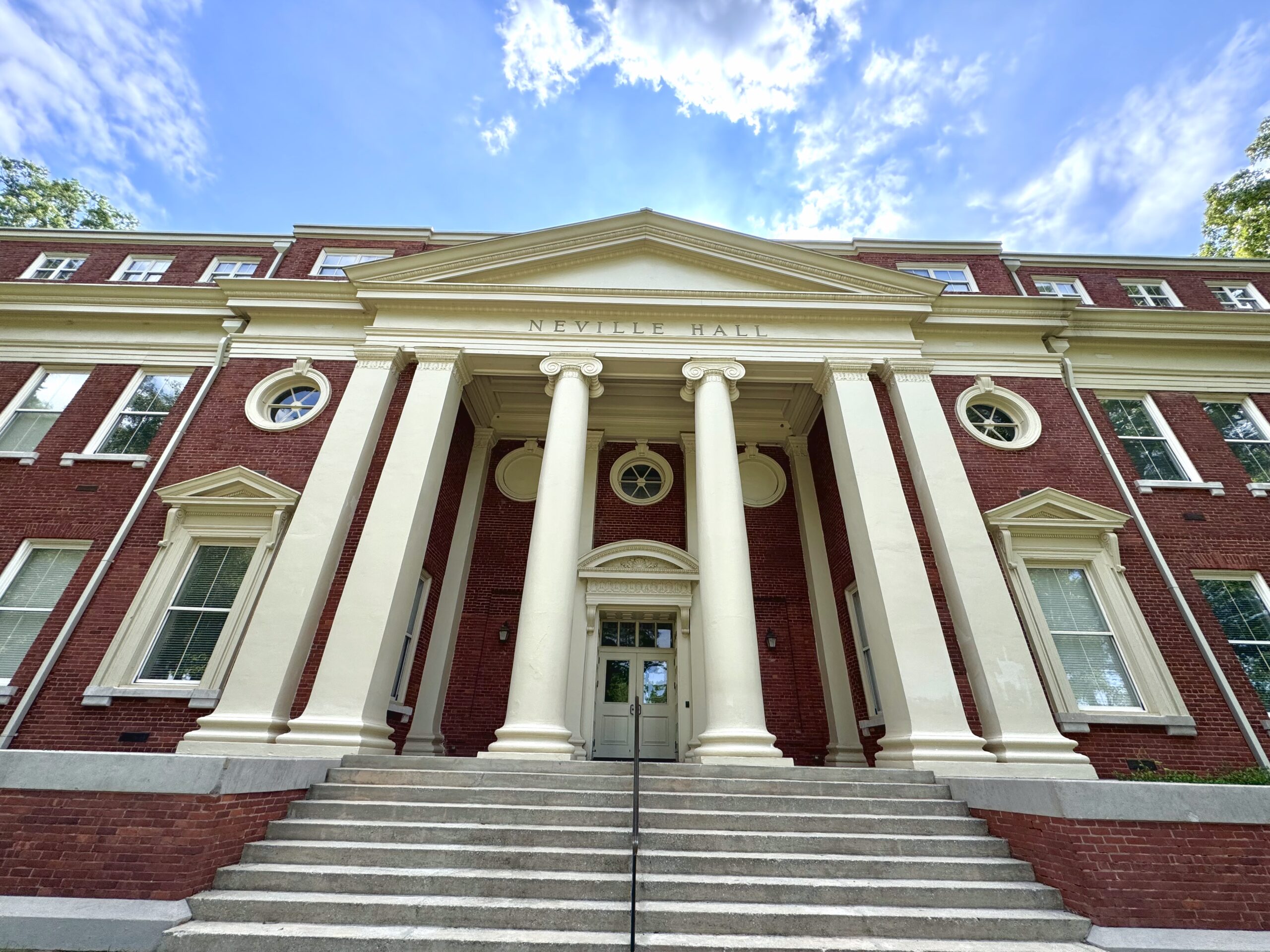Upholding Institutional Integrity
Presbyterian College is committed to fostering a safe, respectful, and transparent campus community. Below you’ll find important policies, reports, and guidelines that support our values and outline the rights and responsibilities of students, faculty, and staff.
- Animal Use & Care
- Clery Report & Crime Statistics
- FERPA
- Firearms, Alcohol & Drug
- Honor Code & Student Conduct
- Stop Campus Hazing Act
- Student Consumer Information
- Title IX
- Student Complaint Procedures
- Professional Licensure Disclosures
Presbyterian College is a tobacco-free campus and prohibits the use of all smoking and vaping products.
All use of tobacco and all smoking and vaping is prohibited in college buildings, in enclosed areas owned by the college, and on college property.
Governance & Policies by SEction
Business Office
- Cash Advance Policy (pdf)
- Conflict of Interest (pdf)
- Information Security for Merchant Accounts (pdf)
- Travel and Entertainment Policy (pdf)
- Whistleblower Policy (pdf)
Counseling
Counseling Services maintains records as regulated by the State of South Carolina. Maintenance of records is in accordance with professional, legal, and ethical guidelines. For students ages 18 or older, only authorized Counseling Services staff have access to records, unless students consent to release information in writing. Counseling records do not become part of the academic record, and even the fact that students have come to Counseling Services is not divulged to anyone without their consent and permission. Students who wish their information to be shared with others outside of Counseling Services must complete a “Release of Information” form granting permission to release copies of records.
There are important exceptions to this policy. Counseling Services staff are required to disclose the information if:
A judge has subpoenaed records.
There is a danger of harm to the student/client or another person.
A current case of abuse or neglect of children and or elderly is suspected.
Although Counseling Services staff regularly communicate via email, we also value the privacy of our students and clients.
Please consider the following information prior to sending an e-mail to Counseling staff:
E-mail is not an appropriate medium for individual questions regarding personal counseling. It is most appropriate for requesting general information regarding services, resources, or other campus information. Counseling Services staff does not respond to inquiries from students/clients regarding specific counseling issues. Confidentiality is essential to the counseling process and cannot be assured with e-mail. We cannot guarantee that the contents of an e-mail message will remain confidential. While we will do our best to keep communications private, e-mail usage can be monitored and others may read the content of personal messages.
Staff access to e-mail is also limited to Counseling Services work hours. There is no expectation that Counseling Services staff will check e-mail after hours. Also, there is no way of knowing whether a specific staff member is unavailable due to illness, vacation, or other reasons. This means that a message may not be read immediately.
E-mail should never be used for urgent communication of any sort.
We seek to educate our students on its dangers and view its misuse as detrimental to both our students and the educational purposes of the college.
Alcohol misuse is a serious issue on college campuses. We also realize that alcohol use is ultimately a decision that will be made by your student. As such, we work to provide a campus atmosphere that develops individual responsibility and awareness of the danger of misuse. Administrators, faculty, counselors and concerned students provide strong support to all students on this issue, particularly those who make a moral or health decision to abstain.
Presbyterian College collaborates with a local agency, Gateway Counseling Center, to offer students who have problems with alcohol and/or other substances the opportunity for treatment. Depending on the student’s needs a variety of treatment options are available. One such option is a monthly alcohol education class, on campus, taught by a member of the Gateway staff. Other students may require more intensive therapy which is available at Gateway Counseling Center or an Addiction Center of their choice.
Information Technology
The College grants limited access to its computer systems to PC faculty, staff, current students, and certain others to transact legitimate business with the College. Unauthorized access to or use of any College computer system is prohibited and may be prosecuted under state and/or federal law.
Consult the College’s Acceptable Use Policy for more details. Always plan ahead, and keep a backup of work since no system is guaranteed.
As a courtesy to students, faculty, and staff, IT Help Desk will evaluate hardware issues and make recommendations.
IT Help Desk is not a hardware repair center.
Federal law specifically requires colleges to inform their students that unauthorized distribution of copyrighted material, including unauthorized peer-to-peer file sharing, may subject students to civil and criminal liabilities. In addition to civil or criminal charges in court, unauthorized distribution of copyrighted material may result in sanctions imposed by the College. Read the full Copyright Infringement Policy.
Students are allowed to purchase or stream through legal services such as GooglePlay, Netflix, iTunes, or Amazon for personal use.
Illegally downloading unauthorized versions of copyrighted materials such as music, movies, files, or videos is prohibited on campus. Copyright infringement is not something to be taken lightly and the government can file criminal charges, which can result in substantial fines and imprisonment.

